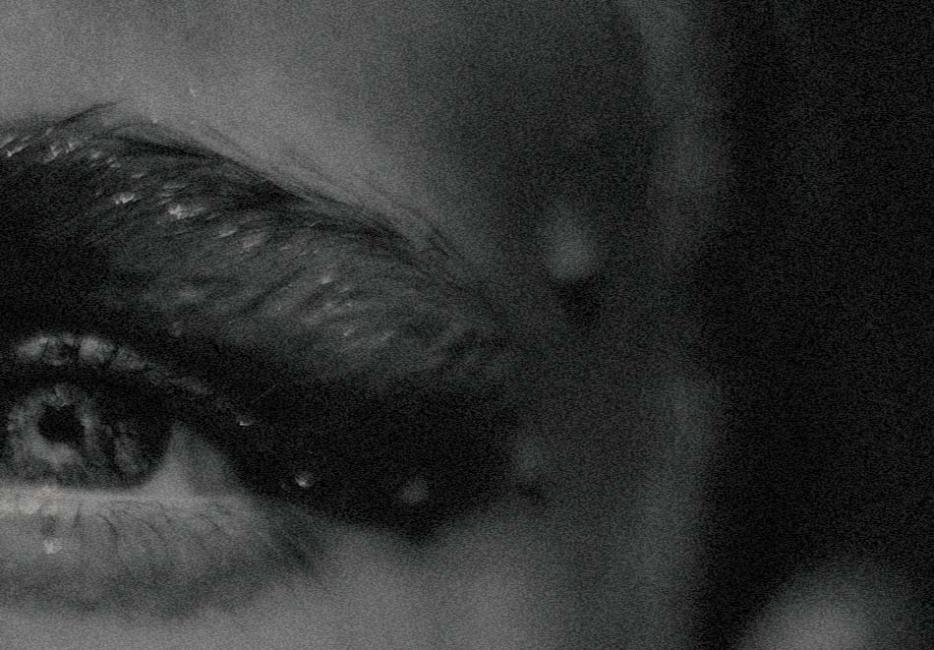What is it? Jamie asked.
What’s what? Tess replied, opening out windows on the last day before half-term.
Jamie said: That noise. He remembered hearing it on his first day, when he bolted.
What noise?
The woo hoo hoo hoo noise? Jamie said. Listen.
A bird, Jamie … it’s a wood pigeon.
Jamie said: Strange how it is always hooting. Does it not ever tire?
Doesn’t appear to.
Why can I never see it? Jamie said.
Perhaps it doesn’t want to be seen?
Jamie considered this as Tess pulled off her heavy coat and hung it by the door.
Why would it not want to be seen?
Dunno, Tess said, fear maybe?
Is that a new coat, Ms Mahon? Jamie said.
It’s not technically new, Tess said, perching on the corner of her desk. It’s my winter coat so it’s new to you. I take it out when the seasons change, she said, looking out the window at the sky.
Good idea, Jamie said, what with November coming, though looking into gardens on my way to school this morning, there are still some roses in bloom, the soil is still warm. I also panicked because: Global Warming.
Tess laughed and eased herself back fully on the desk, as she swung her legs around.
It’s strange, Jamie said, fiddling with his jelly cat. What?
You just laughed at catastrophe.
Tess said: Yes. Sorry, Jamie. Global Warming is no joke, just the way … you said it.
Women really are ironic?
Tess smiled. You mean iconic?
No. Ironic, Jamie said. I don’t think you are taking me seriously?
Yes, of course I take you seriously, she said. But sometimes you take the whole world serious enough for everyone.
Jamie considered what Tess said. He trusted her. Do I?
Yes, she said, and tell me, why are women ironic?
That is a thing I need to figure out. I asked Terry and he said he has no clue about women, they are a mystery, despite actually living with one. It was something Eoin said, once, when I asked him what Noelle died from, and he said, Hellp, and then he said, fucking ironic, eh? So I consider that to be the reason women are ironic. I’ve googled it, but it doesn’t fit.
Who’s Noelle?
My mother. Eoin’s … And then Jamie stopped talking.
I’m very sorry, Tess said. Jamie shot her a look. And she continued, I am very sorry when people have experienced loss. I mean, death. When someone dies.
Right, Jamie said. But it’s hardly ironic. You could not call my mother’s death ironic, could you?
No, it doesn’t seem to fit, that’s true, Tess said. But I think that perhaps Eoin just said it because he was hurt.
Hurt?
I guess irony is … Tess took a deep breath. The illness that your poor mum died from is called Hellp. And it affects the blood and liver.
Yes, Jamie said.
So, your dad said it was ironic because it didn’t help your mam at all, in fact it killed her.
He was making a bad joke, Jamie said.
I think when people are hurt, they say things they don’t mean.
That’s absurd.
Yes, you’re correct, well, a little bit, Jamie, and the irony here is the expression of one’s meaning by using language that normally signifies the opposite—often to a cause humour or, sometimes, to make a point.
So he was making a joke about her? About her dying?
No.
That’s what you said.
No, Jamie. He was using black humour.
What?
Sometimes hurt people use black humour. It’s a dark or morbid humour, that makes light of a subject matter that is generally taboo.
Taboo? Jamie said. The word tickled his lips.
A prohibition on something, something someone might say. In this case … Tess stopped dead.
What about this case? Jamie probed.
In this case, the death of your mam, but only, she said, quickly, I suspect he used it to deal with it. It can be very hard dealing with, you know, death, Jamie. And people have different ways of handling it. There’s no right way.
Jamie hummed a moment. Thank you, he said, finally. I do understand iconic, and you are neither iconic, nor ironic.
Tess switched on her computer in an attempt to distract him: Right, let’s see what’s happening in this world today.
The world will be doing what it always does … rolling along like tumbleweed, Jamie said as he zigzagged to Tess’s whiteboard.
Tess said: Jamie, what are you working on now?
I can’t explain yet but it makes me happy and besides, you adults always say, books good, screens bad. Which is ironic considering there’s no library in this school.
Tess laughed. That’s a fact, Jamie. It was futile arguing. She had not slept the night before and had not the energy for verbal combat. Jamie needed a plan or he fell into solving numerous, complicated and infinite maths problems on the board. And she had failed in her morning’s planning. He was strong-willed and independent in his own learning, though Tess had learned it was easy to distract him.
The wood pigeon hooted again.
Ms Mahon, Jamie said, the marker is running dry.
Jamie, how about you actually call me Tess now?
He looked at her aghast. Oh no, I don’t think I can.
She was quiet for a while and finally said: Mrs Mahon is my mother-in-law and that makes me feel—
Old? Jamie interrupted.
Tess laughed. I’ve no problem with being old. But I’d rather not be the second Mrs Mahon.
Is it a trigger? Jamie said as he worked out on the board. Trigger?
Jamie responded: Yes. An outburst in reaction to something personal, like trauma or abuse. You know, like trigger warnings for content on YouTube and at the beginning of university lectures, though most usually in humanities and social sciences such as English Literature or Gender Studies. Maths does not need trigger warnings for content. It’s inoffensive, maybe the most universal language in the world. That might make it the most beautiful language, he said.
In your opinion, Jamie.
Yes, Jamie said. It is frustrating at times, progress in mathematics moves at a glacial pace, but it is inoffensive, correct. And as causing offence is so subjective, I’m sticking to a life of mathematics.
Tess laughed. What’ll I do with you?
Tell me about the bird.
Tess pulled up the sleeves of her cardigan. Her elbows were a mottled blue. She was always cold, but this term she was unable to heat herself at all. She’d taken to heating her whole body with a hairdryer in bed after school for hours. Tess pulled a plastic spiral hair tie from her wrist and lifting her black hair up. She sealed it in a topknot.
The day’s light had failed to illuminate the yard outside. The oak tree curled along the red fire escape that led to the workshop from a back entrance. Amber lights filled the top narrow windows of the wood workshop. Sometimes during summer months, when Tess had her windows ajar, she could hear the noise of the saw and the manic laughing that boys make when grouped together in a practical subject.
Go on, Jamie said.
Wood pigeons?
He nodded.
Tess read from the computer screen: Flight is quick, performed by regular beats, with an occasional sharp flick of the wings, characteristic of pigeons in general. It takes off with a loud clattering. It perches well, and in its nuptial display walks along horizontal branches with swelled neck, lowered wings, and fanned tail. During the display flight the bird climbs, the wings are smartly cracked like a whiplash, and the bird glides down on stiff wings. The common wood pigeon is gregarious, often forming very large flocks outside the breeding season. Like many species of pigeon, wood pigeons take advantage of trees and buildings to gain a vantage point over the surrounding area, and their distinctive call means that they are usually heard before they are seen.
What does gregarious mean?
Fond of company.
Like you?
No, she said. I’m not sociable.
You are.
But I stay in my room.
Yes, but you like company.
I do? she said.
Yes, you do, otherwise you wouldn’t always have me in this room chatting, Jamie said, writing Gregarious in cursive on the top right-hand corner of the whiteboard, the space where Tess puts Objectives of Learning for a full class of students listening to Frank O’Hara reading about lovers or Yeats speak in riddles about politics.
Yes, Tess said.
Today I heard five Shakespearean insults walking along the corridor, and it is a first—five insults in quick succession, not five of my favourite, and if I hear one more, it will be a good day, an even day.
Oh now, maybe you’ll be lucky and hear one last insult before the day ends.
We are lucky, Tess, Jamie said, her name awkward in his mouth.
Really? Lucky?
Yes, it is reported that those who have dead mothers, while the child is in infancy, are more likely to die in the first year of life, and neither of us did, that makes us both statistically very lucky. As far as my preparation for Shakespearean insults goes, I am not a fan of Shakespeare per se, I only read the insults as memes online. I’ve never read any of his plays. I used to read his sonnets when I was younger and Marie was weaning me off Poe.
Poe?
Yes, Poe. Edgar Allan.
I know who Poe is, Jamie.
I have heard mostly single-word insults here.
What? Tess said, slowly considering what he had told her.
Weedy, rank, scut, lout and reek, Jamie said. Then he repeated them counting out as he went.
Jamie! Tess said.
What?
Who uses these words?
I don’t know, I don’t know the boys’ names in my class, except Terry and Piotr.
Terence, yes, who’s Peter?
Piotr Pulaski. I hear fag also, and its plural, bundle-of-sticks variation, faggot, though the boys here tend to drop the last vowel sound on that word, and in fact many more words ending in that broad e / y sound. But that’s not technically Shakespearean, that insult, faggot, at least I have no evidence to prove it is, Jamie said as he blew his fringe up.
Tess was silent.
I’m monologuing.
It’s OK, she said, quietly.
Do you know another funny thing?
What?
You told me all about the wood pigeon who is perched in the wood workshop.
Yeah?
I have been thinking, neither the wood pigeon nor I can take part in woodwork. I can’t be inside the room because of the saws, also more importantly because Father Faulks said that I am a danger to myself in that room, even though Mr. Foley said firmly that I was not a danger to anyone. I have never been in that room, so it is puzzling to me as to how Father Faulks came to that hypothesis.
What? Tess said. When were you speaking with Faulks and Mr. Foley?
Jamie was furiously writing now. He avoided Tess’s eyes peering at the back of his head: Did I say something wrong?
No, no, Jamie.
Father Faulks talks with me lots in his office.
What? When?
Friday afternoons. He sometimes takes me out of religion class. I don’t mind, I hate religion. That deacon from Harrisburg irritates me. Did you know there is not one provable fact discussed in that class with Logan? And what kind of name is Logan?
What? Tess was flustered now but panic would silence him. What do you and Father Faulks talk about?
He shrugged.
Surely you must talk about something.
School.
What about school?
Maths, Eoin, my future.
Your future?
He’s always on about my future and wanting the best for me. I said the future is not a topic I like to discuss as it has so many variables at this time, and I am not encouraged to over-think variables, as it can lead to anxiety, and to—
How did he respond to that?
Laughed, Jamie said, quickly. He also asked if I preferred boys or girls.
What? Tess said.
Yes. Absurd.
What did you say?
I said that gender was forced on us but mostly that I pay it very little heed. It is a very old-fashioned approach to humans, much like religion—very unquantifiable.
How did he react to that?
He asked me which one I’d prefer to date. And was still going on about boys and girls. I said I do not date, as I am not sure what that means, and refer back to my answer in any case, to which he said I was exasperating, but I think he meant exciting.
Was Foley involved, Jamie?
Yes, Jamie said, putting the lid on the marker. It was Wednesday. I was coming out of the Oratory, I only know because this was the day you were late. Wednesday, the day you came in crying and your face red. This happens to all adults. Remember. That is what you said, remember, and I said, Ms. Mahon, you really are a mess on Wednesday and you said, oh that’s OK, Jamie, sometimes people are busy and rushing, this happens to all adults.
Foley … Mr. Foley? Go back.
Mr. Foley asked why you hadn’t picked me up. I was looking around and waiting for you, and he comes up to me and said, hello! Jamie O’Neill, and I said, hello! Mr Foley.
Is that all?
No, Father Faulks was coming from the Oratory at great speed and Mr. Foley puts out his right hand to stop Father Faulks.
He did what?
Yes, Jamie said. Just like this, re-enacting the scene with great gusto up and down the classroom. Then he said—and let me just say, Tess, he was cross—Once again, I would like a word about why this fine young man isn’t partaking in my woodwork class. And then, confusingly, Mr. Foley smiled at me. He has such red lips, Tess. I said that I was not a man yet and they both stared at me, and you have told me to go completely silent when all eyes are on me. Father Faulks can stare for so long without blinking. He just kept staring.
What happened then?
Father Faulks said, we’ve been through this Foley, in that exact voice, Jamie said, scrunching up his face. Foley said, it’s Mr. Foley. And then he said that I was not to go into the office ever again without a chaperone. He is always on about chaperones.
And how did Faulks respond?
He said, how dare you accuse me … Then Mr. Foley stood out in front of him, and said, I’m not accusing you of anything, but students should be chaperoned by an adult. And I do not go into the office any more now. In fact, I am not to pass the threshold, that’s what Mr. Foley said. I had to google threshold which just means don’t go into the office, again adults complicating everything.
The bell rang.
Jamie clicked the lid back onto the marker, turned to the whiteboard, scanning his work before he cleaned it, then rushed out, relieved the bell had stopped the conversation. Tess locked up her classroom, walking out into the autumn evening where the fallen leaves were yellow and mulchy underfoot. She was shattered, for as much as she liked Jamie, he could be absolutely exhausting, and now she was also filled with concern.
Excerpted from How to Build a Boat by Elaine Feeney, Biblioasis 2023.






